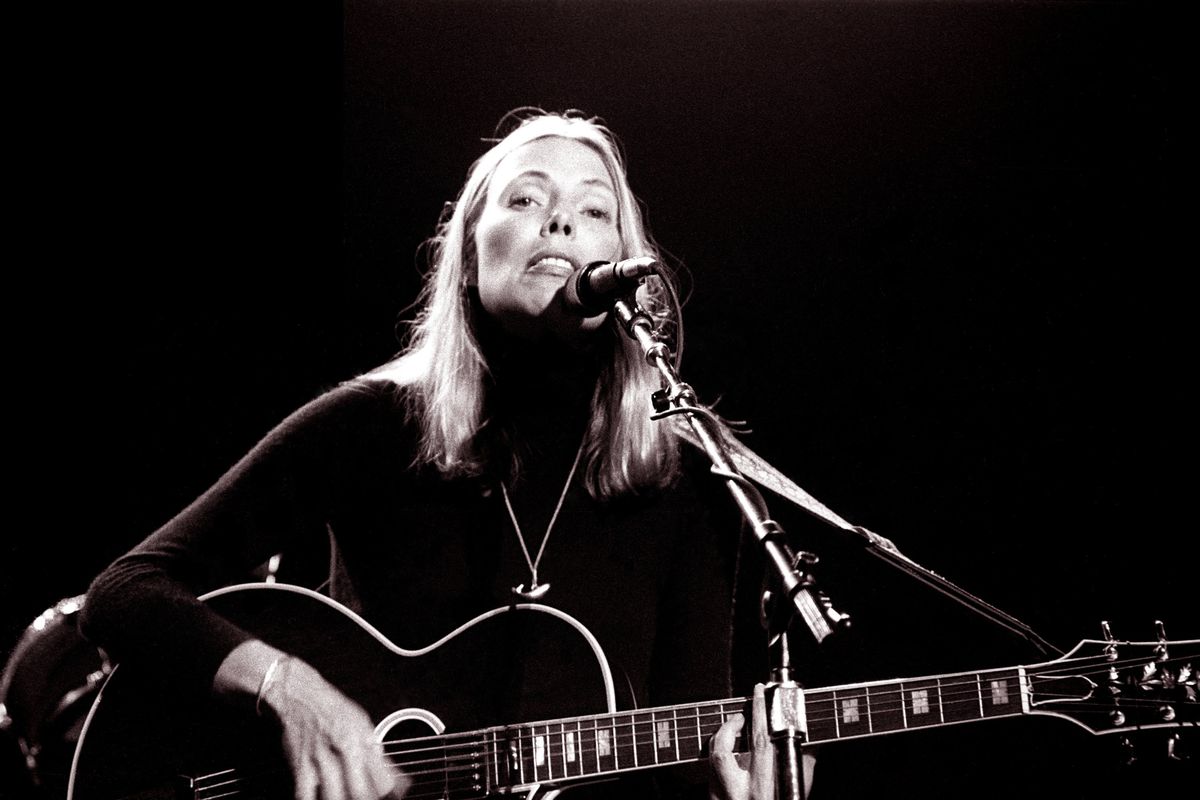Let me preface this article by confessing that I am an avid Spotify stan. Like people that can’t get off TikTok or are physically unable to stop scrolling Twitter, it’s not Spotify specifically, but the unbelievable abundance of choice that bombards the app. I mean, you get a plethora of Daily Mixes catered to your taste; blended playlists made with your friends; countless artists, song and genre radios; and I’ve got to appreciate the formidable marketing behind Spotify Wrapped. I just think it’s a dandy app and I’ve discovered some good tunes on there, so naturally I’m grateful for it’s presence on my silly little home screen.
However, more recently there’s been a lot to reassess and think about when it comes to the streaming giant. It’s getting harder to defend the platform and why I prefer it to other services, and an eerily-perfect algorithm isn’t enough to save it.
Folk legend Joni Mitchell announced in an article on her website recently that her music would be removed from Spotify, uniting with fellow folk artist Neil Young in protest against Spotify’s reluctance to take action against Joe Rogan’s popular podcast, where criticism has arisen over the sharing of misinformation on vaccines and the pandemic in general to his audience of around 11 million per episode. Rogan’s podcast used to be free to stream on YouTube, before Spotify bought the rights as sole distributor in a $100 million deal in 2020. It exists now as one of the company’s biggest assets, and the only video streaming available on the platform.
‘I’ve decided to remove all my music from Spotify. Irresponsible people are spreading lies that are costing people their lives. I stand in solidarity with Neil Young and the global scientific and medical communities on this issue.’ – Joni Mitchell, January 28, 2022
The open letter includes signatures from 270 scientific and medical experts that call for a stronger response towards misinformation from Spotify.
Prior to this debacle, the pressure on Spotify to change their act came majorly from the ‘micropayments’ towards artists. Artist and founder of Milk! Records, Jen Cloher, extended on this in a recent Instagram post, noting that Spotify’s laughable 0.004 cents per stream only benefits massive artists, adding that in a pandemic, ‘the capacity to earn from streaming live shows doesn’t put food on the table for smaller artists’.
Spotify’s gross underpayment of artists is a fuelling element to their potential demise, with increasing calls on Twitter to ‘#BoycottSpotify’ and move to services like Bandcamp, that pays its artists more adequately and fairly.
PR teams can only do so much to relieve matters and keep the calm. Neil Young removing his catalogue alone resulted in an over $2 billion loss in market value for Spotify; costly, following their $100 million rights deal for Rogan’s podcast, and with the effects of Joni Mitchell’s leaving the platform not yet clear. Essentially, some users and artists want to see Spotify reevaluate their moral and ethical responsibilities, not only when it comes to Rogan’s podcast, but in paying artists fairly for their work.
What makes Spotify so great as a service is it’s relationship to choice. But choice isn’t just the ability to freely find new music and podcasts with precision to your taste, but has become many other things. If more artists, especially the ones raking it in for the Spotify suits, make the choice to remove their music from the platform, Spotify users’ privilege of choice is weakened, even if by a little bit. Then there is the choice that users themselves have to unsubscribe or halt their payments in their own form of protest.
Money talks and Spotify knows that. It just depends on whose money they’re going to listen to about it.
Article written by Savannah Selimi

